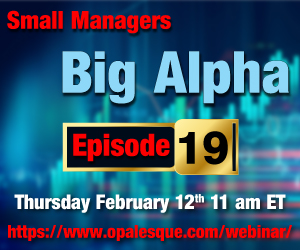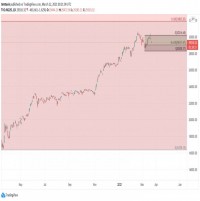|
Opalesque Industry Update - The 2008-9 Global Financial Crisis (GFC) was in many ways the making of the private debt industry. Funds were able to take advantage of opportunities presented by the contracting economy, and banks' retreat from the corporate lending space helped to spawn the direct lending sector. But the industry today is a different beast compared to a decade ago: North America-focused private debt funds hold half a trillion dollars in assets as of September 2019, up 37% from the end of 2008, and the industry is much more diverse and specialized. Moreover, the nature of the COVID-19 pandemic, and its associated economic downturn, is very different from the 2008 GFC. The abrupt cessation of economic activity, combined with social distancing and travel restrictions, have led to a complicated combination of consequences. But there are four key lessons for North American private debt that are emerging as the downturn takes hold: 1. Liquidity is the watchword: private equity fund managers may find that their portfolio companies require more capital than they have reserved in their vehicle. Private debt funds are well-positioned to offer supplementary capital to these firms as they seek to prop up their holdings during a downturn. 2. Fund managers should focus on existing investors: A key difference of 2020 compared to 2008 is the limited ability for investors to hold face-to-face meetings with fund managers. This is likely to put a damper on investors committing to firms they don't have a prior relationship with. Managers with funds in market should therefore concentrate on investors with whom they already have a rapport. 3. Direct lending could fall out of favor: Direct lending has been the success story of the decade, growing from $85bn in assets at the end of 2007 to $222bn as of June 2019. But the majority of upcoming opportunities are likely to be in more highly leveraged companies. As such, distressed debt, special situations, and mezzanine funds are best positioned to capitalize in the short term. Direct lending is likely to become more attractive during a recovery period, as companies seek financing to get back on their feet. 4. Cooperation between borrowers and lenders is vital: During an economic downturn, especially one as abrupt and unique as the current crisis, companies can have liquidity issues that even the most pessimistic models fail to account for. Lenders and borrowers will have to build a rapport and work together to establish flexible payment terms and schedules in order for both parties to survive and thrive. Kainoa Blaisdell, Executive Writer said: "While the GFC's origins are financial, and COVID-19's origins are biological, both crises occurred in a late-cycle environment characterized by significant leverage. Also, both have significantly impacted fundraising and deal-making in North America's private debt market. Although fundraising has seen the most immediate impact, the pandemic has also put the brakes on rising asset prices. Looking back, North American private debt funds with vintages coinciding with crisis periods tend to outperform funds of other vintages, so some light may be seen at the end of the tunnel, and funds with 2020 vintages might have stronger returns than their immediate predecessors."
|
Industry Updates
COVID-19 will put North American private debt to the test
Thursday, May 21, 2020
|
|





 RSS
RSS










